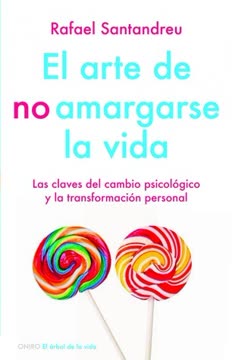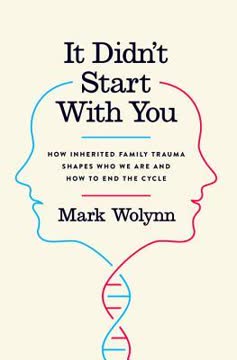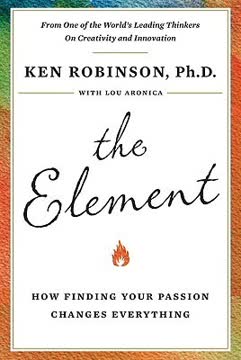Puntos clave
1. Love comprises three dimensions: Eros, Philia, and Agape
A complete, healthy, and gratifying love that brings us closer to tranquility than to suffering requires the balanced union of the three factors mentioned: desire (eros), friendship (philia), and tenderness (agape).
Three-dimensional love. Love is a complex emotion that encompasses three distinct dimensions: Eros, Philia, and Agape. Each dimension plays a crucial role in creating a fulfilling and lasting relationship:
- Eros: Passionate, sexual love
- Philia: Friendship and companionship
- Agape: Selfless, unconditional love
Understanding and nurturing these three aspects of love can lead to more balanced and satisfying relationships. By recognizing the importance of each dimension, individuals can work towards developing a more comprehensive and mature approach to love, fostering deeper connections with their partners.
2. Eros: Passionate love that can lead to suffering if not balanced
The eros is ante todo un amor fluctuante, turbulento y contradictorio.
Intensity of Eros. Eros represents the passionate, intense, and often irrational aspect of love. While it can be exhilarating, it can also lead to suffering if not properly managed. Characteristics of Eros include:
- Intense physical attraction
- Overwhelming emotions
- Desire for possession and fusion
Eros is often associated with the initial stages of a relationship, characterized by heightened emotions and physical desire. However, relying solely on Eros can lead to instability and pain. It's essential to recognize that while Eros is a vital component of love, it should be balanced with other dimensions to create a more stable and fulfilling relationship.
3. Philia: Friendship love that deepens relationships over time
La philia es ante todo pacífica y rechaza todo tipo de agresión injustificada, ya sea verbal o física.
Nurturing Philia. Philia represents the friendship and companionship aspect of love. It is characterized by mutual respect, shared interests, and a deep emotional connection. Key aspects of Philia include:
- Emotional intimacy
- Shared experiences and memories
- Mutual support and understanding
Philia often develops and deepens over time, providing a stable foundation for long-term relationships. Unlike the intense passion of Eros, Philia offers a calmer, more enduring form of love. Cultivating Philia involves:
- Open communication
- Shared activities and interests
- Emotional support during difficult times
By nurturing Philia, couples can create a strong, lasting bond that withstands the test of time and challenges.
4. Agape: Selfless love that prioritizes the well-being of others
El ágape es la dimensión ética del amor que se transforma en altruismo; es el camino de la otra pasión, la del sufrimiento que se regala; es benevolencia pura: «Daría mi vida por ti», dicen los que así lo sienten.
Cultivating Agape. Agape represents selfless, unconditional love that prioritizes the well-being of others. It is characterized by:
- Compassion and empathy
- Willingness to sacrifice for the loved one
- Unconditional acceptance
Agape is often considered the highest form of love, transcending personal desires and ego. It involves putting the needs of the loved one before one's own, even in difficult circumstances. Developing Agape requires:
- Practicing empathy and compassion
- Letting go of selfish desires
- Cultivating a mindset of service and giving
While Agape is a noble aspiration, it's important to maintain a balance and not neglect one's own well-being in the process of loving others selflessly.
5. Healthy relationships require a balance of all three love dimensions
Si hemos logrado integrar de manera ponderada y unificada al eros (deseo) y a la philia (amistad), la percepción será que todo está bajo control, que sin lugar a dudas hemos logrado armonizar una relación sana y perdurable.
Balancing love dimensions. A healthy, lasting relationship requires a balance of Eros, Philia, and Agape. Each dimension contributes uniquely to the overall quality of the relationship:
- Eros provides passion and excitement
- Philia offers companionship and emotional intimacy
- Agape brings depth, compassion, and unconditional acceptance
Achieving this balance involves:
- Recognizing the importance of each dimension
- Actively nurturing all aspects of love
- Adapting to changes in the relationship over time
By striving for a harmonious integration of these three love dimensions, couples can create a more resilient, satisfying, and enduring relationship that meets both partners' emotional needs.
6. Self-awareness and emotional intelligence are crucial for love
No siempre evaluamos el impacto que nuestros actos tienen en los seres queridos; hacerlo implica descubrirnos en el terreno de las debilidades: «Porque soy débil, comprendo tu debilidad», es la flexibilidad del amor que se despoja de la soberbia.
Developing emotional intelligence. Self-awareness and emotional intelligence play crucial roles in fostering healthy relationships. These skills enable individuals to:
- Understand their own emotions and needs
- Recognize and respond to their partner's emotions
- Communicate effectively and empathetically
Improving emotional intelligence involves:
- Practicing self-reflection and introspection
- Developing empathy and active listening skills
- Learning to manage and express emotions constructively
By cultivating these skills, individuals can create more meaningful connections, navigate conflicts more effectively, and contribute to a more harmonious and understanding relationship.
7. Communication and mutual respect foster lasting relationships
Una buena relación está basada en la confianza mutua, en las fantasías compartidas y en un erotismo disponible.
Effective communication. Open, honest communication and mutual respect are foundational elements of lasting relationships. Key aspects include:
- Active listening and empathy
- Expressing needs and boundaries clearly
- Showing appreciation and gratitude
Fostering mutual respect involves:
- Valuing each other's opinions and feelings
- Supporting individual growth and autonomy
- Maintaining trust and honesty
By prioritizing effective communication and mutual respect, couples can build a strong foundation for their relationship, resolving conflicts more easily and deepening their emotional connection over time.
8. Overcoming fear and vulnerability strengthens bonds
No puedes amar sin correr riesgos.
Embracing vulnerability. Overcoming fear and embracing vulnerability are essential for deepening emotional connections in relationships. This involves:
- Being open about fears and insecurities
- Taking emotional risks by sharing deeply personal thoughts and feelings
- Allowing oneself to be truly seen and known by the partner
Benefits of embracing vulnerability include:
- Increased emotional intimacy
- Stronger trust and connection
- Greater authenticity in the relationship
While being vulnerable can be scary, it's a crucial step in building a truly intimate and meaningful relationship. By facing fears together and supporting each other through moments of vulnerability, couples can create a stronger, more resilient bond.
9. Love evolves and transforms throughout a relationship's lifecycle
El amor evoluciona con los años si todo va bien: se descentraliza y los sentimientos se asientan, por decirlo de alguna manera.
Evolving love. Love is not static; it evolves and transforms throughout the course of a relationship. Understanding this natural progression can help couples navigate changes more effectively:
- Initial stages: Often characterized by intense Eros
- Middle stages: Development of deeper Philia
- Later stages: Potential for growth in Agape
Adapting to these changes involves:
- Accepting that feelings and dynamics will shift over time
- Continuously nurturing all aspects of the relationship
- Being open to growth and change as individuals and as a couple
By recognizing and embracing the evolving nature of love, couples can maintain a vibrant, dynamic relationship that continues to meet both partners' needs as they grow and change together.
10. Cultivating compassion enhances the quality of love
Compasión significa compartir el dolor, identificarse con el sufrimiento ajeno, hacerlo propio.
Power of compassion. Cultivating compassion is a powerful way to enhance the quality of love in a relationship. Compassion involves:
- Empathizing with your partner's struggles
- Offering support without judgment
- Prioritizing your partner's well-being
Benefits of practicing compassion in relationships:
- Deeper emotional connection
- Increased trust and intimacy
- Greater resilience in face of challenges
Developing compassion requires:
- Active listening and empathy
- Practicing forgiveness
- Cultivating a mindset of kindness and understanding
By fostering compassion, couples can create a more supportive, nurturing environment that strengthens their bond and helps them navigate life's challenges together more effectively.
Última actualización:
FAQ
1. What is "Ama y No Sufras" by Walter Riso about?
- Comprehensive guide to love: The book explores the nature of love, why it often leads to suffering, and how to experience love in a healthier, more fulfilling way.
- Three dimensions of love: Riso structures his analysis around three Greek concepts—Eros (passion/desire), Philia (friendship/companionship), and Ágape (compassionate, selfless love).
- Practical and psychological approach: Drawing from psychology, philosophy, and real-life cases, the author offers practical advice to help readers avoid unnecessary suffering in relationships.
- Focus on emotional well-being: The central message is that love should not be a source of pain, and with the right mindset and tools, one can love without suffering.
2. Why should I read "Ama y No Sufras" by Walter Riso?
- Understand love’s complexity: The book demystifies love, helping readers recognize and avoid common misconceptions that lead to emotional pain.
- Actionable advice: Riso provides concrete strategies and mental frameworks to build healthier, more balanced relationships.
- Blend of science and wisdom: The author combines psychological research, philosophical insights, and practical examples, making the content accessible and relatable.
- Empowerment in relationships: Readers learn to set boundaries, maintain individuality, and cultivate self-respect within romantic partnerships.
3. What are the key takeaways from "Ama y No Sufras" by Walter Riso?
- Love is multifaceted: True love requires a balance of desire (Eros), friendship (Philia), and compassion (Ágape).
- Avoid idealization and dependency: Unrealistic expectations and emotional dependency are major sources of suffering in love.
- Rationality matters: Healthy love involves both emotion and reason; thinking clearly about love prevents unnecessary pain.
- Self-care is essential: Maintaining one’s individuality and self-worth is crucial for a satisfying relationship.
4. How does Walter Riso define the three types of love—Eros, Philia, and Ágape—in "Ama y No Sufras"?
- Eros (Desire/Passion): Eros is the passionate, sexual, and possessive aspect of love, often marked by intensity, idealization, and emotional highs and lows.
- Philia (Friendship/Companionship): Philia represents the friendship and companionship within a relationship, emphasizing mutual respect, shared values, and joy in each other's company.
- Ágape (Compassion/Altruism): Ágape is the selfless, compassionate dimension of love, characterized by care, tenderness, and the desire to support the partner’s well-being without expecting anything in return.
- Integration is key: Riso argues that a healthy, lasting relationship requires a harmonious blend of all three types.
5. What are the main causes of suffering in love according to "Ama y No Sufras"?
- Irrational beliefs and idealization: Unrealistic expectations, such as believing in perfect or eternal love, set people up for disappointment and pain.
- Emotional dependency and attachment: Over-reliance on a partner for happiness or self-worth leads to anxiety, jealousy, and loss of self.
- Lack of boundaries: Sacrificing one’s individuality or tolerating mistreatment in the name of love results in emotional harm.
- Failure to balance love’s dimensions: Neglecting Eros, Philia, or Ágape creates imbalance and dissatisfaction in relationships.
6. What practical advice does Walter Riso offer in "Ama y No Sufras" to avoid suffering in love?
- Maintain individuality: Don’t lose yourself in the relationship; keep your interests, friends, and personal goals alive.
- Be realistic and rational: Challenge idealized notions of love and recognize that passion naturally fluctuates over time.
- Set healthy boundaries: Learn to say no, assert your needs, and avoid tolerating disrespect or abuse.
- Cultivate all three loves: Actively nurture desire, friendship, and compassion within your relationship for lasting satisfaction.
7. How does "Ama y No Sufras" by Walter Riso address the role of desire and sexuality (Eros) in relationships?
- Eros is necessary but not sufficient: Passion and sexual desire are vital for a complete romantic relationship, but they alone cannot sustain it.
- Avoid obsession and idealization: Riso warns against letting Eros dominate, as it can lead to dependency, jealousy, and emotional instability.
- Keep desire alive: He encourages creativity, playfulness, and open communication to maintain sexual attraction over time.
- Balance with other dimensions: Eros should be integrated with Philia and Ágape for a healthy, enduring partnership.
8. What is the importance of friendship (Philia) in love, according to "Ama y No Sufras"?
- Foundation for stability: Philia provides the companionship, trust, and mutual understanding that sustain relationships beyond the initial passion.
- Shared values and joy: A strong friendship in a couple means enjoying each other’s company, sharing interests, and supporting each other’s growth.
- Conflict resolution: Philia helps partners navigate disagreements with respect and empathy, reducing the likelihood of destructive conflict.
- Long-term satisfaction: Relationships with high levels of Philia tend to be more resilient and fulfilling over time.
9. How does "Ama y No Sufras" by Walter Riso explain the role of compassion and selfless love (Ágape) in relationships?
- Ágape as mature love: Compassion and selfless care are signs of emotional maturity and are essential for deep, lasting bonds.
- Limits of self-sacrifice: Riso cautions that Ágape should not mean tolerating abuse or losing one’s dignity; self-care remains important.
- Practical expressions: Acts of kindness, patience, and support during difficult times strengthen the relationship.
- Complements other loves: Ágape enriches Eros and Philia, creating a holistic and nurturing partnership.
10. What are the most common dysfunctional patterns in love described in "Ama y No Sufras" by Walter Riso?
- Addiction to passion: Some people become addicted to the highs of Eros, leading to serial relationships or emotional instability.
- Emotional repression: Fear of suffering can cause people to shut down emotionally, avoiding intimacy and vulnerability.
- Unbalanced relationships: Overemphasis on one dimension (e.g., only passion or only friendship) leads to dissatisfaction and eventual breakdown.
- Pathological jealousy and control: Excessive possessiveness and mistrust are highlighted as major sources of suffering and dysfunction.
11. What are the best quotes from "Ama y No Sufras" by Walter Riso and what do they mean?
- "El amor no tiene por qué producir sufrimiento si somos capaces de eliminar las creencias irracionales que la cultura ha inculcado en nosotros."
Meaning: Love itself isn’t the problem; it’s our unrealistic beliefs that cause pain. - "Ama y haz lo que quieras." (San Agustín, cited by Riso)
Meaning: When love is genuine and healthy, ethical behavior follows naturally. - "El amor incompleto duele y enferma."
Meaning: Neglecting any of love’s essential dimensions leads to emotional distress. - "Desilusionarte del amor es desilusionarte de la vida. No puedes vivir en el desamor sin enfermar, nadie puede."
Meaning: Love is vital for well-being, and giving up on it is harmful to one’s health.
12. How can readers apply the lessons from "Ama y No Sufras" by Walter Riso to their own relationships?
- Self-reflection and awareness: Regularly assess the balance of Eros, Philia, and Ágape in your relationship and identify areas for growth.
- Challenge irrational beliefs: Question cultural myths and personal assumptions about love that may be causing unnecessary suffering.
- Communicate openly: Foster honest dialogue with your partner about needs, boundaries, and expectations.
- Prioritize self-respect: Ensure that your pursuit of love never comes at the expense of your dignity, health, or happiness.
Reseñas
Ama y no sufras receives positive reviews for its exploration of three types of love: eros, philia, and agape. Readers appreciate Riso's clear writing style, real-life examples, and practical advice for maintaining healthy relationships. Many find it insightful and helpful for personal growth, especially for young adults. Some critics note that certain sections are less engaging or too explicit. Overall, readers value the book's balanced approach to love and relationships, with an average rating of 4.09 out of 5 stars.
Similar Books











